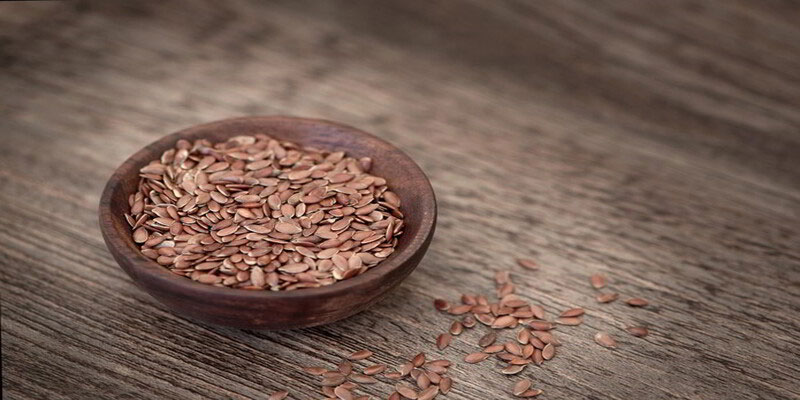5 Winter Traps That Can Cause Weight Gain and How to Avoid them
Oct 11, 2024 By Madison Evans
In the winter, keeping your weight in check may be challenging. It's cold outside, so people don't go outside as much, and parties for the holidays mean a lot of sweets and rich foods. During the winter, you may decide not to work toward as much. This can make it harder to form bad habits like not walking around. Knowing about these common mistakes is vital if you want to make plans to help you stay on track this season. In the winter, focusing on a balanced lifestyle can help you get through the season confidently so you can start the New Year feeling healthy and refreshed.

5 Ways to Gain Weight in the Winter:
High Sugar Consumption: Winter comfort meals and Christmas sweets are popular. Cookie, cake, and hot chocolate Christmas sweets may lead to overeating. Heavy meals might lower energy and mood and cause weight gain. A rapid blood sugar swing might produce weariness and irritation. Joy may make healthy living tougher.Social winter events might lead to overeating. Need may cause these delights to be ignored during family feasts and holidays. Near sweets and fats, it's hard to resist. Holiday feasts and social pressure cause overeating. Avoiding winter weight gain requires balance and control.
Non-exercise:People stay inside more in winter since it's chilly and wet. As the days shorten and the weather cools, gym attendance may suffer. Many prefer staying inside over doing sports or running with others. Their health may suffer. This alteration may make individuals less active, making weight gain easier.Christmas goodies may make some individuals overeat, even if they don't exercise. It's now feasible to acquire weight. If you don't exercise enough, you may feel horrible about yourself, demotivating you. Get inventive with winter activities to stay active. Indoor workouts, winter sports, or home were examples. Weight management is crucial.
Stress:
Stress during the holidays, money, and less daylight hours all trigger weight gain. Gathering with loved ones, planning parties, and buying presents may be stressful for many. Dieting helps many individuals feel better. This is termed "emotional eating," which involves munching on unhealthy, high-calorie items. You may gain weight and feel awful about overeating. When anxious, you may make terrible choices.
Your hormones might shift due to stress, making you need more sweets and fat. People under extreme stress produce cortisol. Being overweight might make you hungry and accumulate fat. You must understand how concern makes you eat to discover better solutions. Sports, exercise, and mindfulness may help you lose weight and avoid winter binge eating.
Changes in sleep:
Winter sleep plans may be difficult since days are shorter and individuals adapt to new patterns. As the sun sets sooner, many people's circadian cycles fluctuate, making it hard to go asleep or wake up peaceful. Poor sleep may decrease your metabolism and make it tougher for your body to regulate hunger and fullness hormones. Hormonal imbalance may cause overeating and unhealthy food cravings.
Tired people with sleep issues may find it harder to move. Exhausted and hungry people binge. These effects may be reduced by going to bed at the same time and relaxing your environment. Get more rest. Well-nourished individuals can remain fit throughout winter.

Seasonal Affective Disorder (SAD):
Seasonal depression (SAD) sufferers feel sad in winter when there is less sunlight. SAD symptoms include fatigue, irritability, and changes in appetite, particularly for carbohydrates and sweets. This illness may cause overeating and weight gain because people seek solace in food. Winter is very difficult for this illness.
SAD fatigue may also deter activity, causing weight gain. It might be difficult to interrupt the cycle of hunger, unhappy eating, and decreased activity. People who suspect SAD should get treatment, light therapy, or lifestyle changes. Helping SAD sufferers with emotional and mental illnesses in winter might help them lose weight and feel better.
5 Tips to Avoid Winter Weight Gain:
Be Active with Family and Friends:
Staying active with family and friends is an effective strategy to combat winter weight gain. Engaging in group activities like ice skating, sledding, or winter hiking keeps you physically active and transforms exercise into a fun social event. These activities allow bonding with loved ones while burning calories, making it easier to maintain motivation during the colder months. The camaraderie from exercising together can make the experience more enjoyable and less of a chore.
Watch Your Portion Sizes:
Watching how much you eat is even more critical when you're eating holiday foods and treats in the winter. When you eat a lot, you may take in too many calories, making it hard to keep a good weight. If you choose smaller amounts, you can enjoy the tastes of holiday foods without going overboard. This method not only helps you control how many calories you eat but also makes you enjoy the food more, making each bite more enjoyable.
Get Plenty of Sleep:
Good sleep habits are vital in the winter when the days are shorter, and routines can get thrown off. Aim for 7 to 9 hours of sleep every night to keep your body healthy and your health in general. Hormonal changes caused by insufficient sleep can make you want bad foods more, making it harder to avoid temptation. To keep your hunger in check and live an adequate life, ensure that you get enough rest.
Limit Your Dessert Intake:
Many sweets look good now that winter is coming. But you should eat less if you want to stay at a healthy weight. You can still enjoy sweets even if you eat them less often. It won't hurt your health. Set aside days to eat dessert, or don't eat the whole thing. Instead, eat a tiny bit sometimes. This way, you can eat something sweet without too many calories.
Avoid Processed Foods:
Many already-made foods suffer from extra calories, fats that are bad for you, and sugar that doesn't do anything. In the winter, these things can make you gain weight. Whole foods that are good for you in the winter are fruits, vegetables, whole grains, and lean meats. Not only do these foods give you the nutrients you need, but they also make you feel full, which makes you less likely to snack on unhealthy foods.
Conclusion:
You can stay healthy all winter long if you know what can go wrong in the winter that can make you gain weight. You can make better choices if you know about things like eating too many rich foods, not being busy enough, and sensitive eating. It can help you fight the urge to sit down all day if you keep yourself busy. This can be done through workouts or events with family and friends. Also, being aware of the foods you eat and watching how much you eat can make it much less likely that you will gain weight you don't want.
-
 Fitness Nov 12, 2024
Fitness Nov 12, 2024How Much Movement Should Joints Have Without Muscle Help?
Passive range of motion (PROM) is the movement possible in a joint without muscle engagement. Learn how it impacts flexibility.
-
 Condition Jan 04, 2024
Condition Jan 04, 2024Panic Attacks: Understanding the Inner Experience
Gain insight into the inner workings of a panic attack and learn strategies for coping.
-
 Condition Oct 02, 2023
Condition Oct 02, 2023Melanoma: Identifying Cancerous Moles and Their Causes
With melanoma being the most lethal form of skin cancer, understanding the symptoms, causes, and preventive measures is paramount.
-
 Condition Dec 16, 2023
Condition Dec 16, 2023How To Treat High Blood Pressure At Home
Home remedies for managing high blood pressure include diet and nutrition, exercise and physical activity, stress management, sleep and rest, herbal remedies, and lifestyle changes. It emphasizes the importance of managing high blood pressure and highlights the effectiveness of home remedies in achieving this goal. The article also includes precautions and risks associated with home remedies and encourages readers to work with healthcare professionals to develop an individualized treatment plan for managing high blood pressure.
